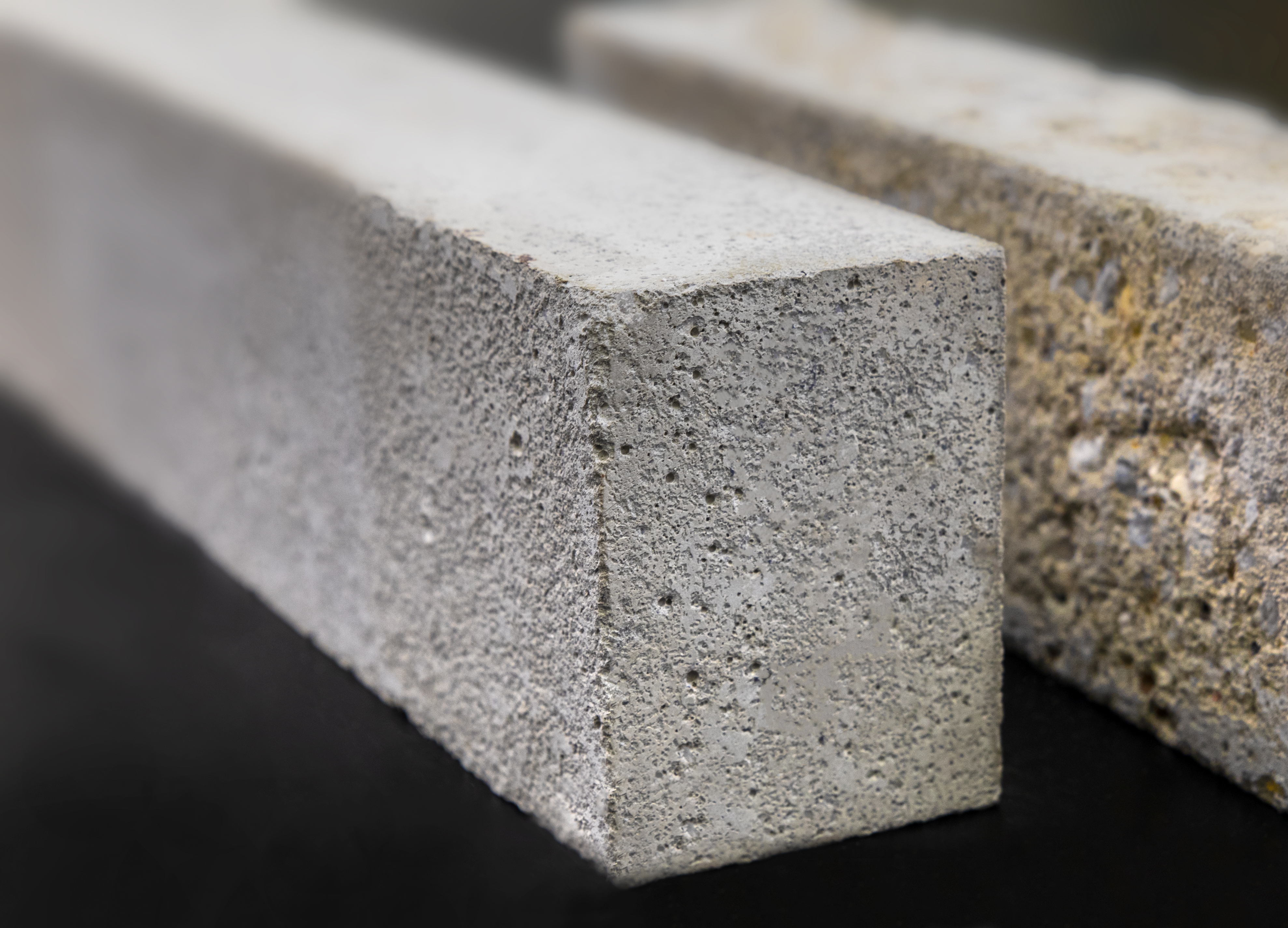Concrete Durability
Concrete durability issues can be costly to repair and are caused by many different factors that occur during the life of the concrete, starting as early as the curing stage. Freezing and thawing cycles, drying shrinkage or restrained shrinkage, as well as concrete permeability, sorptivity and alkali silica reactivity are just a few of the issues that can cause costly concrete durability issues. Master Builders Solutions provides testing to help concrete producer partners identify the durability issues they face with concrete mixtures to help solve those challenges.
ASTM C666 (Freeze-Thaw Testing)
The durability of concrete subjected to repeated cycles of freezing and thawing can be compromised under certain conditions, particularly, if the concrete is not properly air entrained and approximately 91 percent or more of the pores in the concrete are filled with water during the freeze cycles. Deterioration is usually manifested in the form of scaling and cracking through the concrete.
ASTM C157 (Drying-Shrinkage Testing)
When concrete dries, the loss of moisture from the capillary pores results in a change in volume. Restraint of the volume change leads to the development of tensile stresses within the concrete matrix, inevitably causing cracking and leading to serviceability and durability problems.
ASTM C1581 (Restrained-Shrinkage Testing)
When concrete dries, the loss of moisture from the capillary pores results in a change in volume. Restraint of the volume change leads to the development of tensile stresses within the concrete matrix, inevitably causing cracking and leading to serviceability and durability problems.
ASTM C1202 (Rapid Chloride Penetration Testing)
Corrosion of steel reinforcement is one of the major causes of deterioration of reinforced concrete structures. The primary reason is the ingress of chlorides from deicing salts or exposure to the marine environment or brackish water. The rate of ingress of chlorides into concrete depends on the permeability of the concrete, which is affected by factors including materials, mixture proportions, construction practices, and age.
ASTM C1585 (Concrete Sorptivity Testing)
Fluid transport in concrete is influenced by the pore structure and size of interconnected capillary pores. The passage of fluids through capillary suction can impact the rate of chemical ingress leading to premature deterioration of concrete.
ASTM C1260 (Alkali-Silica Reactivity Testing)
ASR is a deleterious chemical reaction between reactive forms of silica in some aggregates (eg: chert, quartzite, opal, strained quartz crystals) and the highly alkaline cement pore solution in concrete. This reaction produces an expansive gel in hardened concrete and, when exposed to continuous moisture, swells and causes cracking of the concrete leading to structural problems and/or high maintenance costs. ASTM C1260 provides a way to assess the potential reactivity of an aggregate intended for use in concrete, whereas ASTM C1567, a slightly modified version, helps to evaluate the ability of a supplementary cementitious material (SCM) to mitigate deleterious internal expansion due to ASR.
ASTM C1609 (Flexural Performance of Fiber-Reinforced Concrete)
Flexure performance testing is conducted primarily to determine the post-crack residual flexural strength and toughness of a concrete mixture reinforced with fibers.
ASTM C1550 (Flexural Toughness of Fiber-Reinforced Concrete)
Flexural toughness testing is used to measure the post-crack energy absorption characteristic of a FRC mixture.
ASTM C856 (Low Compressive Strength)
A common reason for a concrete petrographic examination is to determine the cause of low compressive strength. There are many causes of low concrete strength that can be diagnosed by examining a sample using ASTM C856. These include incorrect mixture proportions such as fly ash overdose, high water-to-cementitious content, and high air content.
ASTM C457 (Microscopial Determination of Parameters of the Air-Void System in Hardened Concrete)
An air-void parameters determination is performed to assess the volume percent air in hardened concrete and assess how well the air is distributed throughout the concrete.
Contact the Master Builders Solutions Technical Center
Please don't forget to fill in your address if you wish to receive information via mail.
Master Builders Solutions will only use your data to reply to your request. We will save your data only as long as necessary to answer your question.
The data supplied voluntarily by you will be stored and processed by Master Builders Solutions using IT systems. Insofar as personal data are involved which we store in order to cultivate business relations, Master Builders Solutions assures you that all rules and regulations of the German Data Protection Law will be respected.
Your personal data is not passed on by us or by our agents for use by third parties in any form whatsoever, unless we have obtained your consent or an official injunction to do so.
You have the right to check all data relating to your person stored with us and inform us, if it is in your opinion out-of-date or incorrect or should be deleted. To inform us, just send an email to the email address indicated in the imprint or to our Data Protection Officer (see "Data Privacy")
Notice Under California Consumer Privacy Act (“CCPA”):
Please be aware that by registering with Master Builders Solutions to learn more about products and services, making purchases, or initiating other business transactions with Master Builders Solutions, Master Builders Solutions will be collecting certain personal information about you and your internet activity for specific business purposes. For a description of the information collected about you and the business purposes for which that information is used, please review our Privacy Policy, which may be accessed here: https://www.master-builders-solutions.com/en-us/footer/data-protection


